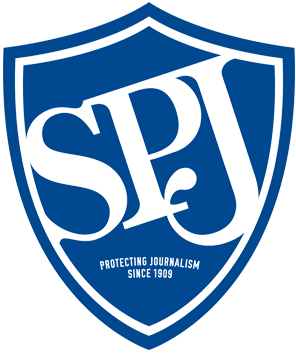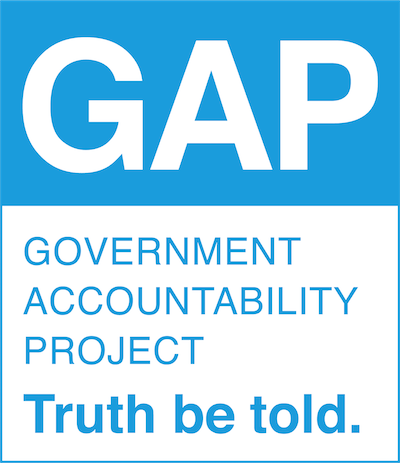The Whistleblower Project


– Introduction
– A Call to Action: Whistleblower Protection Legislation
If passed, these laws would help improve protection for whistleblowers.
Whistleblower Basics
– The Law and Whistleblowing
Deciphering the laws dealing with whistleblowing is complicated, but we hope this will help.
– Whistleblowers and Retaliation
Those who expose wrongdoing can face job loss, lawsuits or even prison.
– Leaking vs. Whistleblowing
Can you spot the difference between a leaker and a whistleblower? It may be trickier than you think.
– Nine Organizations That Work With and Help Whistleblowers
Best Practices for Journalists
– Source Protection and Anonymity for Whistleblowers
In political journalism, there’s a debate over allowing sources to talk to you off the record, in order to keep the access pipeline flowing. Anonymity and the ethics of it can also be complicated in situations beyond scoring political points.
– Whistleblowers and Reporters: Trust
Here are some best practices to follow when working with a whistleblower on a story.
– Technology Can Help Whistleblowers Communicate Anonymously
The ways that reporters and whistleblowers communicate is evolving. The introduction of secure communications has become necessary as journalists try to protect their sources, all the while trying to guarantee the information is secure.
– Anonymity: Not Always the Possible, Nor Always the Best, Strategy
Many whistleblowers want to disclose information about trouble in their workplaces while maintaining their anonymity. However, the vast majority of whistleblowers — more than 95 percent — try to solve their problems internally first.
– When Working with Whistleblowers, Same Ethical Journalism Principles Apply
Government Accountability Project’s “Working with Whistleblowers: A Guide for Journalists” details best practices for working with whistleblowers.
Voices
– Kathryn Foxhall: Good whistleblowing simply needs free speech
During the last 25 years it’s become an accepted norm for government, business, nonprofits and other organizations to prohibit employees to ever communicate with journalists without notifying and being overseen by the authorities, often public information officers. The restrictions are intense, highly effective censorship. The Society of Professional Journalists has made opposing them a priority.
– Jesselyn Radack: Challenges in Defending National Security Whistleblowers
War crimes, mass surveillance, torture: some of the biggest stories in modern history relied on whistleblowers in national security and intelligence agencies. They came forward at great risk to expose the truth.
– Nick Schwellenbach: The Modern Politics of American Whistleblowing
Insiders Valued More Highly in U.S. Society, But Still Face Perils.
 Joel Clement directed the Department of Interior’s Office of Policy Analysis and assessed the impacts of climate change on Native Arctic communities. In June 2017, Clement and dozens of senior officials were involuntarily reassigned as part of a larger systematic effort within President Donald Trump’s administration to marginalize employees whose work focuses on climate change and other environmental issues.
Get the full details of Joel's story, along with 24 other times whistleblowers changed history.
Joel Clement directed the Department of Interior’s Office of Policy Analysis and assessed the impacts of climate change on Native Arctic communities. In June 2017, Clement and dozens of senior officials were involuntarily reassigned as part of a larger systematic effort within President Donald Trump’s administration to marginalize employees whose work focuses on climate change and other environmental issues.
Get the full details of Joel's story, along with 24 other times whistleblowers changed history.
Features
– Mary Willingham: An Attempt To Make The College Athletic System Better For Athletes
Mary Willingham talks about why she spoke out about the treatment of college athletes at North Carolina and why — despite death threats from college sports enthusiasts — she would do it again.
– Megan Wood: Reporting with Purpose
Megan Wood talks about why she looked into San Diego Christian College’s missing $20 million in expenses and how whistleblowers make a difference in their communities.
– Richard Bowen: Blowing the Whistle on Defective Mortgages
While evaluating $90 billion of mortgages Citigroup was buying from Countrywide and other lenders, former Citigroup vice president Richard Bowen tried to warn company leaders and board members about the rise in defective mortgages. In 2010 he testified before the Financial Crisis Inquiry Commission. Here, in Bowen’s words, is what happened next.
– Craig Watts: Typical American Farmer Risks Career to Reveal Inhumane Conditions at Chicken Farms
Craig Watts was a typical American farmer with three kids, two dogs, and a barn full of chickens. That all changed though when he decided to show the public the conditions chickens, sold by Perdue farms, were being raised in.
Credits
Meet the Project Team
To understand the laws, it’s first helpful to have a definition of what a whistleblower is and is not.
From a legal standpoint, in the United States, the Whistleblower Protection Act of 1989 (“WPA”) offers one of the most comprehensive definitions of a whistleblower.
A whistleblower is typically a current or former employee who discloses information he or she reasonably believes is evidence of:
– a violation of any law, rule, or regulation
– gross mismanagement
– a gross waste of funds
– an abuse of authority, or
– a substantial and specific danger to public health or safety.
Under the WPA, employees can disclose information either internally (to managers, organizational hotlines, etc.) or externally (to the Office of Special Counsel, agency Inspectors General, lawmakers, regulators, the media, watchdog organizations, etc.).
The WPA is the primary law that protects most non-intelligence federal employees. This is important to keep in mind because it means not all employees are protected under the Act and not all information falls into those above categories.
If information is labeled as “classified” or is not allowed to be released per statute, the Whistleblower Protection Act will only shield an employee from disclosing that information to the U.S. Office of Special Counsel, an agency Inspector General or an employee designated by an agency chief.
Federal employees who are covered by the Act also have the right to report censorship related to scientific research or analysis that would result in one of the five types of misconduct described above. In addition, they can refuse to obey an order that would require them to violate a law.
Despite the Act providing a standard legal definition of a whistleblower, there is not a single law that protects employees who disclose evidence of wrongdoing. Instead, there are more than 60 federal statutes and numerous state and local laws that protect whistleblowers.
For more on the laws that exist in each state click here.
Despite the many laws, the first step in figuring out what legal protection might be available is to determine the nature of the information being exposed. The type of protection available depends on what type of information is reported — whether it is financial fraud, an environmental violation, a food safety problem or a transportation or occupational safety hazard. Many laws contain anti-reprisal provisions, to encourage employees to report violations as a means to promote legal compliance and enforcement.
Whether legal protection exists can also depend on the type of employee blowing the whistle. Different laws protect federal employees, intelligence employees, federal contractors, corporate employees or state/local workers.
The legal landscape is complicated, with different rules for the process of disclosure, different statutes of limitations for filing a claim, and different remedies.
No matter how important the information is or the impact making it public could have on a community, there is always risk for the whistleblower. Employees who speak out often suffer retaliation rather than thanks.
This is where other legal action can come into play. For the whistleblower, this could mean gag orders, criminal investigations, lawsuits or efforts to seek prosecution including investigations or prosecutions for theft of documents or breach of non-disclosure agreements.
The risks also happen outside the courts and can include public humiliation, surveillance, threats, harassment, violence, poor performance reviews or termination from their job.
While there are no laws to specifically punish whistleblowers, the Espionage Act has been used to punish intelligence community whistleblowers.
Lynn Walsh is a freelance journalist, creating content focused on government accountability, public access to information and freedom of expression issues. She’s also helping to rebuild trust between newsrooms and the public through the Trusting News Project. Follow her on Twitter or send her an email to collaborate on a possible project.